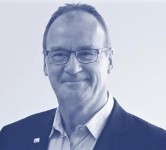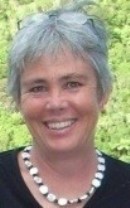Advancing as a portfolio, program of work, or project professional
Advances in Project Management
SERIES ARTICLE
By Iain Fraser & Madeleine Taylor
New Zealand
Introduction
This article offers perspectives that are presented in the book ‘The Business of People: Leadership for the Changing World’ by Iain Fraser and Madeleine Taylor. It offers an extract on leadership competencies that should be part of the core skillset of modern business, portfolio, program of work, and project professionals. It is all very well to know what we know, who we are, and what makes us tick however, what happens if you discover that you have behaviors or thought patterns that are affecting your ability to lead? Problems!
Read on and you will discover handy tips on seven areas related to leading yourself, leading a team, and leading an organization.
The Role of Habits
A bad habit can kill you. In a presentation by Australian couple Glen Singleman and Heather Swan, they recalled how, in learning to wing suit base-jump, it went terribly wrong. They were in Italy on a cliff 4,500 feet (1,370 metres) high. When Glen first tried the jump using a wing jump suit he forgot he was in a wing jump suit and his body reacted as if he was in a parachute. He had arched his back like a usual base jumper however, because he was in a wing suit it meant that the suit caused him to be the wrong way round and upside down – falling at breakneck speeding straight towards the ground. His head was centimeters close to the cliff and he had no-where to fly as the cliff was in his face. He knew he had to change his position in order to flip over and fly out to a safe landing. All the while free falling to certain death. He knew that he had to manage his mind in order to correct his potentially fatal mistake. Clearly, he did this as he survived to tell us the tale. Knowing what he knew about how the brain worked allowed him to recognize the situation he was in and work out how he needed to adapt.
Knowing that you can change old habits can free you to change those things that get in the way of being the leader you want to be and that your team(s) wish for.
Charles Duhigg author of the book ‘The Power of Habit’, offers a definition of a habit as: “A set of behaviors that are repeated regularly and tend to occur unconsciously.” The human brain creates habits in order to be efficient. Habits can be changed and replaced any time we choose. There are three parts to a habit – a cue, a routine and a reward. Sometimes it takes a little work to uncover what the real cue is. Carefully observe each of the following five things that scientists say might cue the habit: location, time, emotional state, other people, and what happened just before.
You have the power to change any habit or behavior you choose. Even very old habits. The key is to learn what the cue is and what the new rewards are and change the routine.
Alan Deutschman in his ‘Change or Die’ book, suggests there are three ideas to focus on when you want to change a habit:
- Relate – a deep belief that a change is possible – real hope for a different future.
- Repeat – practice and practice – develop the new habit, the new way of doing things.
- Reframe – new ways of thinking about the new habit.
The really interesting thing about the formation of habits is that they form the same way for individuals, organizations, and communities – this is compelling information for great leaders. So, do you want to change a habit? Answer these questions to explore the habit you want to change:
- What are the good things about the old habit?
- What would happen if you didn’t change? – Now, in one year, in 5 years?
- Who wants you to change habit and what are their concerns?
- What tells you, you cannot make the change?
- What habits have you been able to change in the past?
- Do you really want to make a change? If yes, keep going. If not, allow yourself not to change and accept the consequences of your choice.
- Who can help you to think this through further?
Managing Destructive Thinking
Our feelings are determined by the thoughts we are having about a situation. The way you think about a situation can change your feelings toward it. Taking time to recognize what you are saying to yourself allows a reflection of ‘that awareness’ and enables you to decide how you want to think in the here and now. Being aware of what you are thinking and the meaning you are giving to a situation is an important skill for leading yourself.
More…
To read entire article, click here
How to cite this paper: Fraser, I., Taylor, M. (2020). Being the Best You Can Be: Advancing as a portfolio, program of work, or project professional, PM World Journal, Vol. IX, Issue IV, April. Available online at https://pmworldlibrary.net/wp-content/uploads/2020/04/pmwj92-Apr2020-Fraser-Taylor-be-the-best-you-can-be.pdf
About the Authors

Iain Fraser
Scotland & New Zealand
![]()
![]()
Iain Fraser is somebody who truly understands the need for organizational change toward entities that are focused on developing their people to explore and deliver business value. Iain has worked with and led teams around the world in the banking and finance, defense, engineering, government, oil & gas, power, and telecommunications sectors. Today he is a sought-after speaker, trusted advisor and trainer on business value and change. Author of the top-selling business book ‘The Business of Portfolio Management— Boosting Organizational Value’ as well as over 25 other publications.

Madeleine Taylor
New Zealand
![]()
Madeleine Taylor has worked with people on the forefront of trouble throughout her professional life, including mental and physical health, grief and loss, conflict and organizational challenges. Through that she has connected with people from many walks of life. Taylor provides training, supervision, facilitation, and executive coaching. Of special interest for the past five years, she has been working with parents and educators about the impact of the overindulgent world on children and families.









